| Gemstone Chart |
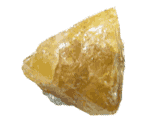 Natural Scheelite Natural Scheelite
Scheelite is a calcium tungstate mineral with the chemical formula CaWO4.With a hardness of 4.5 to 5 on the Moh's ScaleScheelite is a rather soft stone. Traditionally, it was considered a collector's gem and unsuitable for use in jewelry.
Color: Yellowish-white, brownish, orange yellow
Categories: semi-precious stone
Chemical Composition: CaWO4
Crystal Group: Tetragonal
Refractive Index: 1.918 - 1.937
Hardness: 4.5 - 5.0
Density: 5.9 - 6.1
Occurrence: Czechoslovakia; Italy; Switzerland; Finland; Cumberland, Cornwall, England; Santa Cruz, Sonora, Mexico; South Dakota, Conneticut, Colorado, Utah, California, Arizona, USA; New South Wales and Queensland, Australia; Mian Yang, and Ping Wu, Sezhuan, China; Hollinger Mine, Ontario, Canada;
| 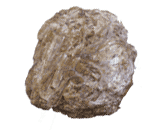 Natural Sillimanite Natural Sillimanite
Sillimanite is an alumino-silicate mineral with the chemical formula Al2SiO5. Sillimanite is a very rare trimorph and it has a common variety called fibrolite.
Color: violet blue, grey green, colorless, brown, green,
Categories: semi-precious stone
Chemical Composition: Al2OSiO4
Crystal Group: Orthorhombic
Refractive Index: 1.658 - 1.678
Hardness: 6 - 7.5
Density: 3.25
Occurrence: France, Madagascar, U.S.A., Sri Lanka, Burma. Kenya
| 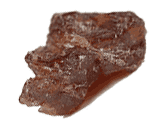 Natural Spessartite Natural Spessartite
The Spessartite is one of the most popular of all garnets. It is highly desired by collectors, jewelry designers and gem lovers.The sources for gem quality spessartine are Sri Lanka and Brazil.
Color: Orange, yellow, brown
Categories: semi-precious stone
Chemical Composition: Mn3Al2(SiO4)3
Crystal Group: Cubic
Refractive Index: 1.79-1.81
Hardness: 7.25
Density: 4.14-4.20
Occurrence: Germany, Ceylon, Burma, Nigeria, Maevatanana-Madagascar, Isoanala-Madagascar, East Africa.
| 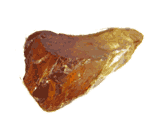 Natural Sphalerite Natural Sphalerite
Sphalerite is one of the very few minerals that has a total of six directions of cleavage, and occurs in many different colors. It is an unusual rare gemstone which is craved for by people as it possesses more brilliance than diamonds.
Color: Orange, yellow, brown, green
Categories: semi-precious stone
Chemical Composition: ZnS
Crystal Group: Cubic
Refractive Index: 2.37
Hardness: 3.5-4
Density: 4.05
Occurrence: Spain, Mexico
| 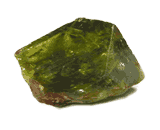 Natural Sphene Natural Sphene
Sphene is also known as calcium titanium silicate.It is named from the greek word for wedge, because of its typical wedge shaped crystal habit.Because of it's high dispersion and refractive index, a well cut sphene can display stunning brilliance. Sphene is somewhat soft and as a result is more suitable as a pendant than as a ring stone. Sphene is rarely very clean.
Color: Green, yellow. brown
Categories: semi-precious stone
Chemical Composition: CaTiSiO5
Crystal Group: Monoclinic
Refractive Index: (1.885-1.990,)-(1.915-2.050)
Hardness: 5.5
Density: 3.52-3.54
Occurrence: Austria, Dheirene-Madagascar, India, USA, Brazil.
| 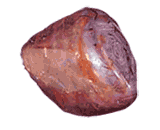 Natural Star Sapphire Natural Star Sapphire
A star sapphire is a lovely gem that exhibits a six pointed star because of the intersection of six thin intersecting inclusions. When the gem is lit from above, the inclusions become quite visible and the star shape appears.A powdery grey-blue star sapphire is the centerpiece of a ring from the Art Deco period.
Color: Blue, green blue, violet, blue, black, brown, pink.
Categories: semi-precious stone
Chemical Composition: AL2O3
Crystal Group: Hexagonal
Refractive Index: 1.759-1.778
Hardness: 9
Density: 4
Occurrence: Sri Lanka, Burma, India, East Africa, Ankarana-Madagascar, Thailand.
| 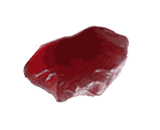 Natural Sunstone Natural Sunstone
Sunstone is a sodium-calcium-aluminum-silicate variety of plagioclase feldspar, which when viewed from certain directions exhibits a brilliant spangled appearance; this has led to its use as a gemstone.
Color: Orange-red, brownish-red
Categories: semi-precious stone
Chemical Composition: NaAlSi3O8
Crystal Group: Triclinic
Refractive Index: RI 1.54 ¨C1.55
Hardness: 6
Density: SG 2.62 ¨C 2.65
Occurrence: Near Lake Baikal Russia; East Africa; Hastings, Renfrew, and Haliburton, in Ontario Canada; Tvedestrand, Hitero, Norway; Kangayam, India; Maine, Oregon, New Mexico, California, and North Carolina, USA.
| 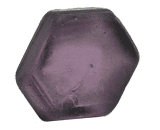 Natural Taaffeite Natural Taaffeite
The chemical formula of mineral Taaffeite is indicated by BeMgAl4O8 or Beryllium Magnesium Aluminum Oxide. Taaffeite actually belongs to the Oxides and Hydroxides mineral class. Taaffeite is one of the beautiful and Rarest gems in the world.
Color: Mauve, reddish violet, brownish-purple, pink, red, blue.
Categories: semi-precious stone
Chemical Composition: Beryllium magnesium aluminate wi
Crystal Group: Hexagonal
Refractive Index: 1.71-1.72.
Hardness: 8 - 8.5
Density: 3.60 - 3.71
Occurrence: Tunduru, Tanzania; Sri Lanka
|
|
